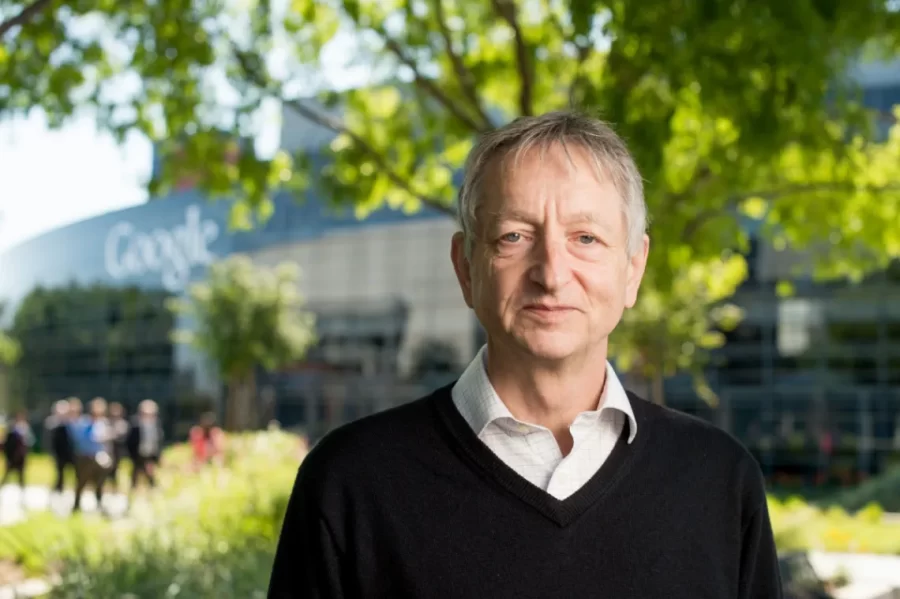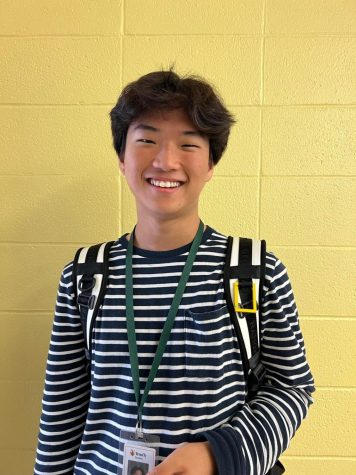‘Godfather of AI’ Leaves Google and Warns of Dangers
May 11, 2023
In recent years, growing developments in artificial intelligence have presented a multitude of challenges and sounded alarms of concern. Many people have worried over the ethical concerns of AI, as well as its risks and dangers.
However, even many insiders in the AI Research community and creators of AI seem to be aware of this warning of the future. Particular attention was given when the man known as the “Godfather of Artificial Intelligence” quit his job at Google in order to freely speak about the dangers of AI, as reported by The New York Times.
The man, Geoffrey Hinton, was a pioneer of artificial intelligence. Over his decades-long career, Hinton’s work with his team laid the foundation for much of the AI technology that is present around the world today.
Hinton’s Career
As stated by The New York Times, during the 1970s, as a graduate student, Hinton began embracing the idea of a neural network—a set of mathematical systems that learned skills by analyzing data. The programmed structure would be inspired by the human brain, and it was a technology that would soon drive the lifetime work of Hinton.
In the 1980s, Dr. Hinton began teaching as a professor of computer science at Carnegie Mellon University but soon left for Canada and began teaching at the University of Toronto. In 2012, Hinton worked with two of his favored graduate students at the University of Toronto to build a computer system that could analyze thousands of photos and later teach itself to identify common objects in pictures, such as animals, cars, or flowers. Hinton described his project as a way to “let computers see more like humans,” and the project changed the way machines could see the world.
In 2013, Google was astonished over Hinton’s work, and spent $44 million to acquire the company begun by Hinton and his two students. Their adopted system led to creations of many powerful technologies still used today, including newly-made chatbots such as ChatGPT and Google Bard. In 2018, Hinton and his new collaborators received the prestigious Turing Award, an honorable feat which is often nicknamed as the “Nobel Prize of computer science,” for their revolutionary works on neural networks. Over the years that he worked at Google, Hinton rose to become one of the most respected voices and leaders.
His Warnings
In the next couple of years, many other companies began building systems based on neural networks, which were able to decode huge amounts of digital text in a short amount of time. Hinton initially thought of these innovations as a powerful way for machines to understand and generate language, and that his works were influential to the invention of more technology.
However, his views shifted at the beginning of last year, where companies such as Google and OpenAI built systems using much larger amounts of data. For example, the startup company OpenAI recently launched one of its latest versions of ChatGPT, called GPT-4, in March of 2023. As stated by DataCamp, this new software improved the model’s ‘alignment,’ or their ability to follow user commands while giving a more truthful and generating less generic output. In other words, they were taking even further steps to mimic the human brain.
Hinton had always believed that AI systems were inferior to the human body in their cognitive ways, but he thought that they may have eclipsed the human brain in some ways. “Right now, they’re not more intelligent than us, as far as I can tell. But I think they may soon be,” he told BBC. “Look at how it was five years ago and how it is now. Take the difference and propagate it forwards. That’s scary,” he said.
In an interview with MIT Technology Review, Hinton additionally pointed out the detrimental effects that the growing technology could have on society. He described how “bad actors” could use AI to manipulate malicious actions. “It’s hard to see how you can prevent them from using it for bad things,” he stated.
Hinton, now 75, says that his decision to retire from Google was so that he could openly warn the public about the potential risks that artificial intelligence can bring. “I want to talk about AI safety issues without having to worry about how it interacts with Google’s business. As long as I’m paid by Google, I can’t do that,” he said.
Hinton’s transition from an AI groundbreaker to doomsayer exemplifies a notable moment for the technology industry to reflect on their works. During a recent interview, Hinton even stated how a part of him now regrets his life’s work. Despite this, industry leaders persistently believe that new A.I technologies are as critical as the introduction of the web browser in the 1990s, and that they will unfold the pathway that could lead to breakthroughs in countless areas.
Like Hinton, many industry insiders have grown fearful of the technologies that they have released into the wild. Soon, they believe, it could pose a risk to humanity.


















































































































































